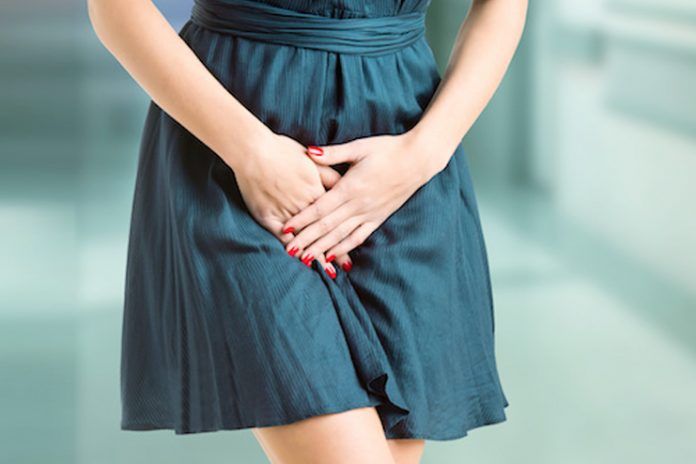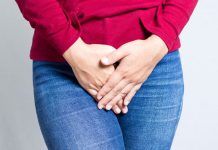Affiliate Disclaimer
Some links in this article are affiliate links. We may earn a small commission if you make a purchase through these links, at no extra cost to you. We only recommend products we find useful to our readersPracticing safe sexual intercourse is a must, given the fact that sexually transmitted diseases can expose a person to a situation of life and death. Chlamydia is also one of those STIs which are contracted when either one of the partners is affected and unprotected sex is practiced among the couple.
While this should explain the majority of what there is to know, it actually doesn’t. The one thing about this specific disease is the fact that the symptoms are very inconspicuous which makes it harder to diagnose in the first place.
In this article, we are going to be discussing everything that one needs to know about Chlamydia and the salient natural remedies to get rid of Chlamydia for good.
What is Chlamydia?
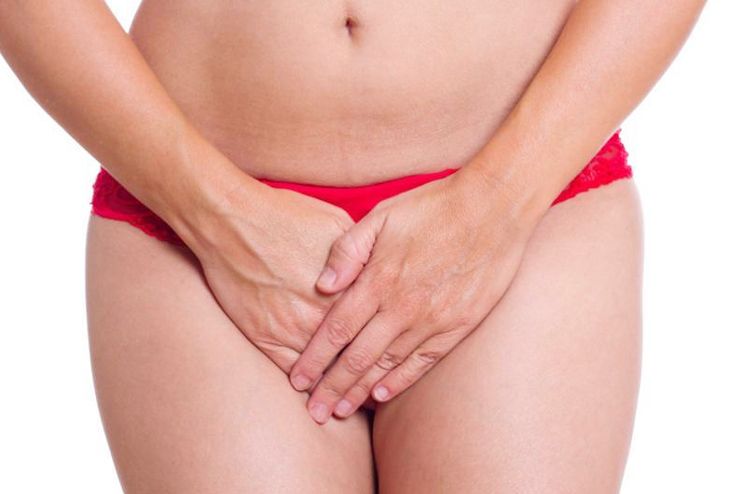
Chlamydia is commonly referred to as the sexually transmitted infection that affects someone when they engage in a physical relationship with someone already affected with the infection. It is bacteria caused and inflicts little to no exterior symptoms at the beginning which is what makes it a problematic disease because the persistent presence of this disease in the body (without any awareness of it) often tends to later inflict negative impacts on one’s health, especially in women.
What Causes Chlamydia?

As mentioned prior to this, Chlamydia is primarily caused because of the transfer of the infection to the uninfected person from the infected person. The main vector that causes the infection is bacteria which are what inhabit and breed to spread the infection throughout the body of the affected person.
Some of the common causes of Chlamydia include:
- Practical coitus without any protection
- Oral sex
- Touching genitals of the affected person
- New born babies might get infected during birth if their mother is infected with the bacteria
What are the Symptoms of Chlamydia?
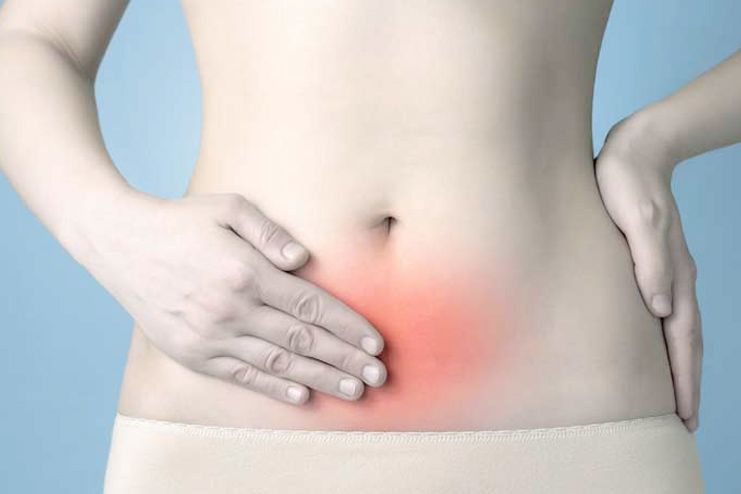
Identifying and diagnosing the symptoms of Chlamydia is often tough, primarily because of the fact that the infection doesn’t necessarily showcase its symptoms right after the person gets infected. The symptoms are often visible around 1-3 weeks after the person has been infected.
Some of the common visible symptoms of Chlamydia include:
- Extreme burning sensation during urination
- Acute pain in the lower part of the abdomen
- Greenish or yellow discharge from the penis or vagina
- Testicular pain in men
- Feeling of pain while sexual intercourse in women
- The persistent temperature in the body
- Nausea and dizziness
- Pain in the pelvic region
- Abnormal bleeding from the vagina in between periods
If the infection is spread via oral sex, chances are that you will feel the symptoms related to a scratchy throat and pain in the throat due to inflammation.
If you are interested in understanding the depth of symptoms based of segregated genders, they include:
Chlamydia symptoms in men
- White and cloudy discharge from the tip of the penis
- Burning sensation while peeing
- Pain around the testicles
- Rectal pain or discharge accompanied by bleeding
- Throat infection
- Conjunctivitis
Chlamydia symptoms in women
- Fever and persistent temperature in the body
- Cramps in the pelvic region
- Abdominal pain
- Feeling of pain during sexual intercourse
- Pelvic infection can cause possible infertility or even miscarriage if the person is pregnant
Apart from these, since this disease is predominantly a bacterial infestation, there are chances that you will feel tired and very fatigued because of the taxing ongoing bacterial attack in your body.
One of the most common questions that are predominantly asked by a number of people is whether or not Chlamydia causes HIV and the answer is a NO. HIV is contracted because of a virus which is nothing close to the causes behind Chlamydia. But, that being said, if someone who is HIV positive contracts Chlamydia are exposed to chances that the same can further adversely affect their immunity, causing certain complications because of their already persistent problem with their HIV.
How Chlamydia is Diagnosed?
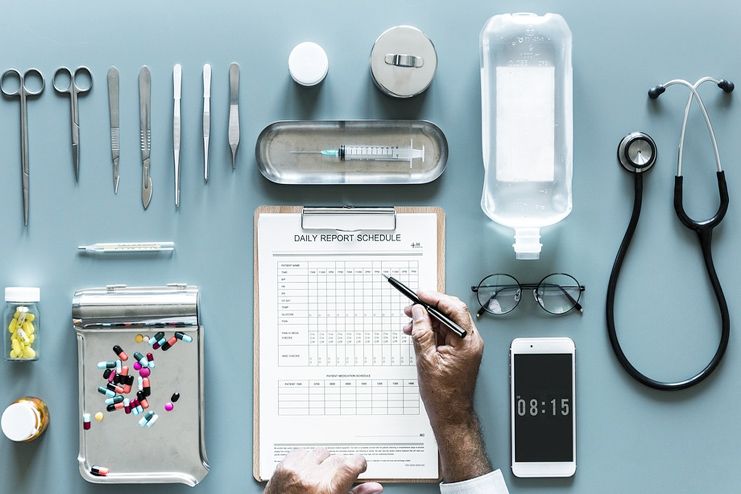 As the symptoms of Chlamydia is not that pronounced during the initial stages, it not likely that you will be able to understand the infection infesting in your system which is why the diagnosis of this STI is often done at a later stage.
As the symptoms of Chlamydia is not that pronounced during the initial stages, it not likely that you will be able to understand the infection infesting in your system which is why the diagnosis of this STI is often done at a later stage.
When seeing a doctor for the problem, they are more likely going to enquire about the symptoms first and if the signs and symptoms are not that pronounced, the doctor moves on to the next best explanation and that is asking you directly why you think you could be exposed to the infection or why you have such a hunch about it.
The swab test is probably the most common tests done for testing out the possibility of Chlamydia. The urine in men and the vagina in women are swabbed and then the same is sent out for testing in the labs.
Home Remedies for Chlamydia
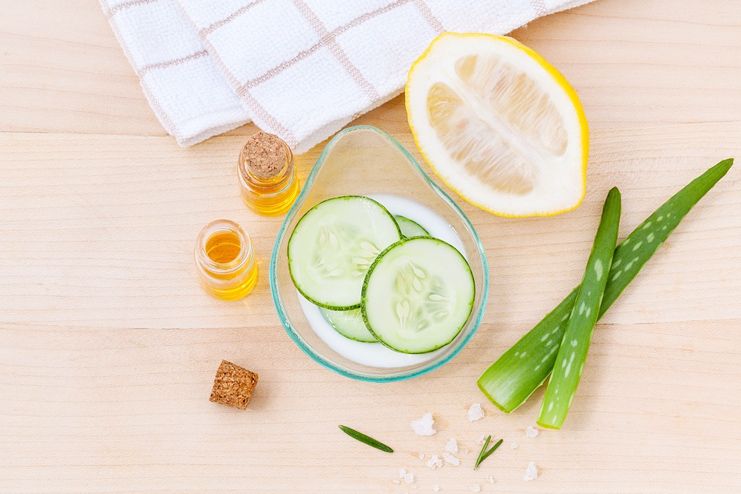 Now that we have more or less walked ourselves through the common norms of what this infection means and how and why it is caused along with the symptoms, let us divert our attention to the few natural remedies for Chlamydia that can help get rid of Chlamydia at home.
Now that we have more or less walked ourselves through the common norms of what this infection means and how and why it is caused along with the symptoms, let us divert our attention to the few natural remedies for Chlamydia that can help get rid of Chlamydia at home.
1. Goldenseal to Treat Chlamydia
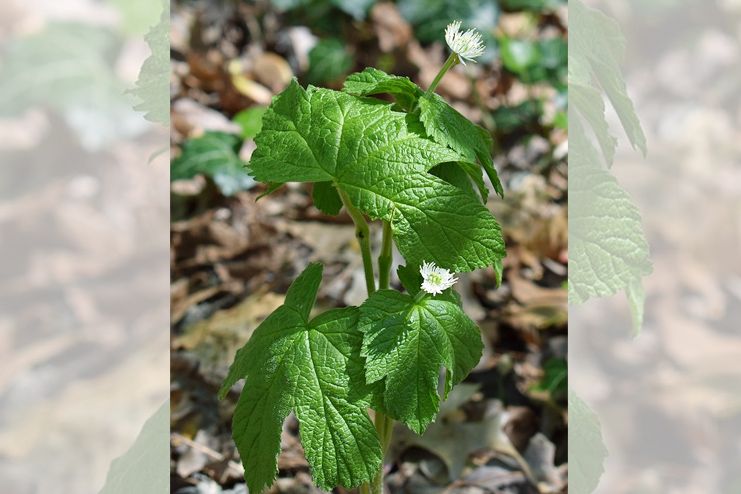 Goldenseal has amazing and beneficial antibacterial and anti-inflammatory properties (R) which help heal the symptoms that accompany Chlamydia. It even has astringent properties which help provide with a soothing feeling that curbs the signs and symptoms of itching and irritation to a certain extent.
Goldenseal has amazing and beneficial antibacterial and anti-inflammatory properties (R) which help heal the symptoms that accompany Chlamydia. It even has astringent properties which help provide with a soothing feeling that curbs the signs and symptoms of itching and irritation to a certain extent.
What to do?
- Consume the over the counter goldenseal pills
- 1-2 pills daily or as per what the doctor prescribes you
How much?
Till the signs and symptoms of Chlamydia are completely cured.
2. Echinacea to treat Chlamydia
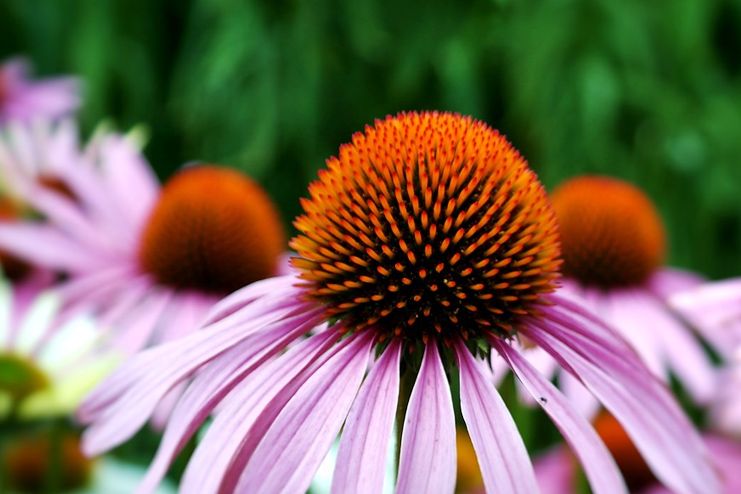 Echinacea is yet another herb that can be used as a combination of herb to treat the signs and symptoms related to Chlamydia. Study shows that this specific herb has an affinity to regulate the immune system functions and helps reduce the susceptibility of the body to infections and other threats that the body is exposed to.
Echinacea is yet another herb that can be used as a combination of herb to treat the signs and symptoms related to Chlamydia. Study shows that this specific herb has an affinity to regulate the immune system functions and helps reduce the susceptibility of the body to infections and other threats that the body is exposed to.
What to do?
- Consume 10 mg of this herb (R) per kilogram of your body
- Do this once a day
How much?
For 10 days.
3. Turmeric to Treat Chlamydia
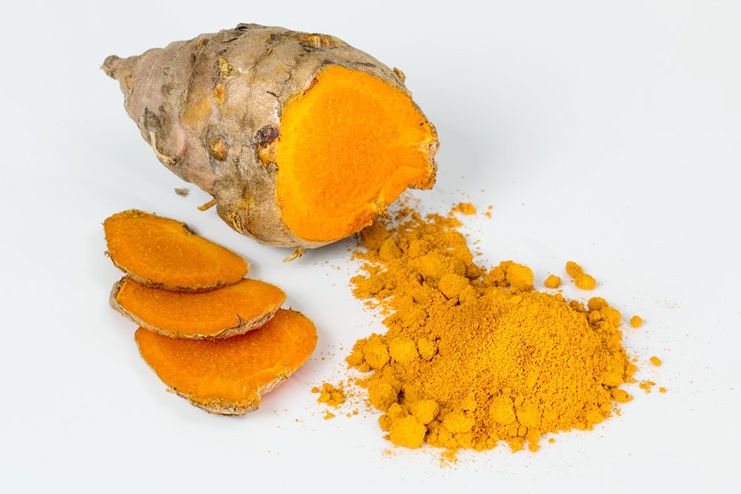 Turmeric is loaded with beneficial antiseptic, antimicrobial (R) as well as anti-inflammatory (R) benefits which make it one of the best options to delve into if you are looking for ways to get rid of Chlamydia for good.
Turmeric is loaded with beneficial antiseptic, antimicrobial (R) as well as anti-inflammatory (R) benefits which make it one of the best options to delve into if you are looking for ways to get rid of Chlamydia for good.
The antimicrobial benefits help prevent the breeding of the bacteria while the anti-inflammatory benefits help combat the inflammation caused in the affected body parts because of the infection.
What to do?
- Drink turmeric milk every night before going to bed
- For topical application, mix one tablespoon of turmeric and make a smooth paste and apply it on the affected areas of the infection to help prevent it from spreading further
How much?
Do this till the Chlamydia symptoms completely die down.
4. Olive Leaf Extract to treat Chlamydia
 The Olive Leaf extract contains a compound in it known as Oleuropin (R) which showcases effective antimicrobial properties (R) which protects the body from the infection caused by the bacteria in Chlamydia. This ensures to cut down all the sources of nutrition to the bacteria, thereby killing it. The lack of bacterial infestation further contributes to the treatment for Chlamydia.
The Olive Leaf extract contains a compound in it known as Oleuropin (R) which showcases effective antimicrobial properties (R) which protects the body from the infection caused by the bacteria in Chlamydia. This ensures to cut down all the sources of nutrition to the bacteria, thereby killing it. The lack of bacterial infestation further contributes to the treatment for Chlamydia.
What to do?
Olive leaves can be consumed in the form of powder, liquid concentrate or even in the form of a capsule. Before consuming it, make sure to consult a doctor to get all the green signals before you end up making the situation worse than better.
How much?
Even the answer to how much depends on the quantity that’s suggested by the doctor.
5. Oregano Oil to treat Chlamydia
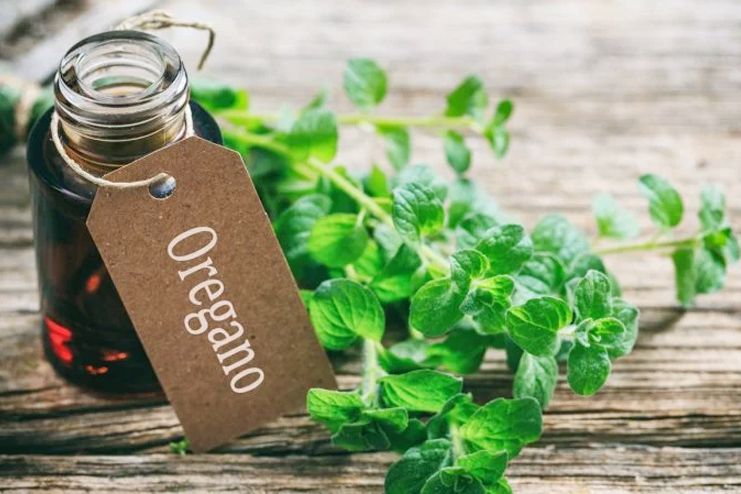
Oregano Oil has natural antimicrobial (R) as well as natural anti-inflammatory (R) properties which help in relieving the signs and symptoms related to Chlamydia. It also imposes slight analgesic properties which have beneficial impacts in healing the pain in the abdomen and pelvic region. While there are not much researches or study that has been done in this field, the results are actually starking.
What to do?
The consumption or even the application of the oregano essential oil depends on the kind of prescription the doctor prescribes you with. Make sure totally out the possible cons as well before you proceed with this specific cure for Chlamydia.
How much?
The answer to this lies within the administered dosage by the doctor themselves.
6. Garlic to treat Chlamydia
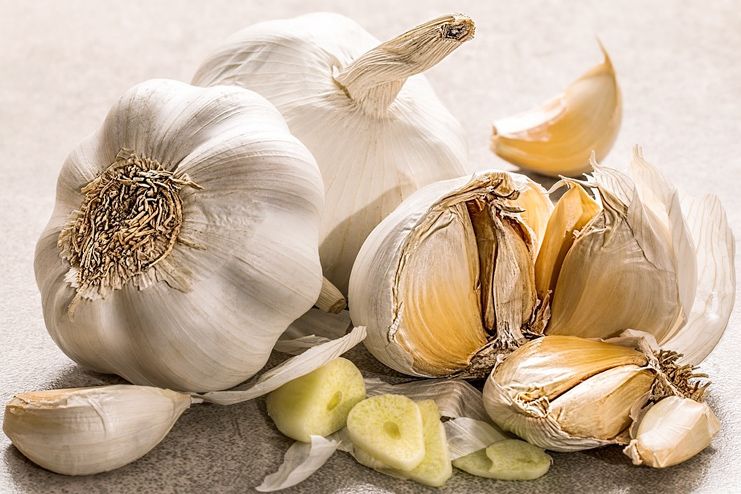 The compound present in the Garlic, Allicin (R) has amazing antimicrobial (R) as well as anti-inflammatory benefits which altogether help to curb the signs and symptoms related to the Chlamydia. Consuming garlic helps get rid of the infection but killing the bacteria that are causing it in the first place.
The compound present in the Garlic, Allicin (R) has amazing antimicrobial (R) as well as anti-inflammatory benefits which altogether help to curb the signs and symptoms related to the Chlamydia. Consuming garlic helps get rid of the infection but killing the bacteria that are causing it in the first place.
What to do?
Chew on 1-2 raw garlic cloves every day
How much?
Consuming garlic on a daily basis is a good habit. It helps ensure one’s overall well being.
7. Sage to treat Chlamydia
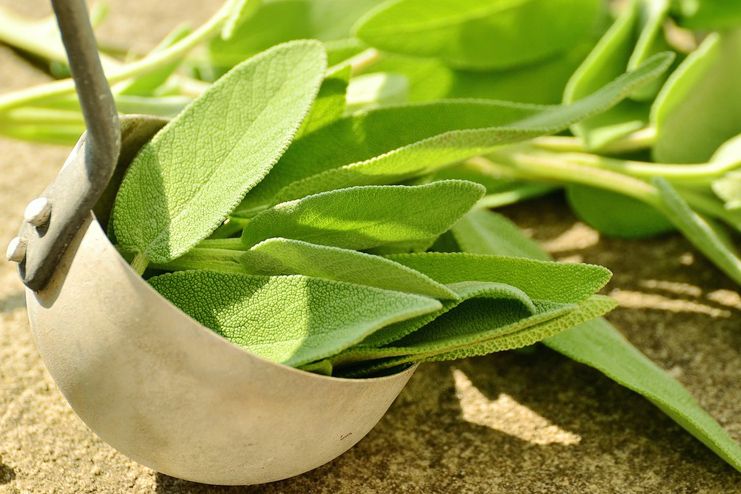 Sage, much like all the prior mentioned remedies in this section, is loaded with beneficial antibacterial properties (R) which is what makes this one of the best natural remedies in the lot that has been widely used since decades now.
Sage, much like all the prior mentioned remedies in this section, is loaded with beneficial antibacterial properties (R) which is what makes this one of the best natural remedies in the lot that has been widely used since decades now.
The antibacterial property helps fight off the infection causing bacteria that is often times the primary reason behind the deteriorating condition of the infection.
What to do?
- Crush the sage leaves to extract the beneficial properties
- Boil some water in a pot and add the leaves in them
- Let it steep for 5 minutes or so
- Drink this 2-3 times a day
How much?
Drink this concoction for a week straight to get noticeable results.
8. Cat’s Claw to treat Chlamydia

Don’t get deterred by the name of the remedy because we aren’t literally talking about the cat’s claws but the herb that is referred to with the same name. Much like every other natural remedies for Chlamydia, even this specific one is loaded with beneficial antibacterial properties (R) which helps fight the infestation of the bacteria that causes the infection.
What to do?
- Consume 500 mg of cat’s claw supplements
- Do this 4 times daily
How much?
The duration for the consumption should be consulted with the doctor first to avoid any kind of further complications.
9. Yoghurt to treat Chlamydia
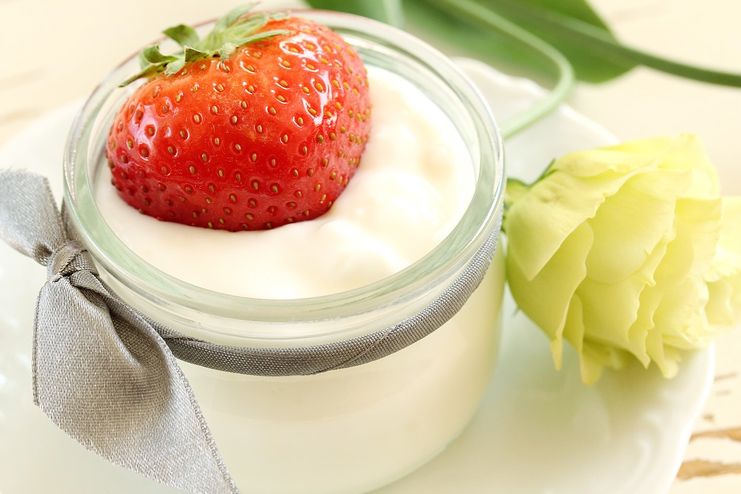 Yoghurt is loaded with antibiotic compounds and enzymes that pose this as one of the most effective remedies for the treatment of Chlamydia effect. The antibiotic properties are what helps fight off the excess growth of bacteria in the body which could be indicative of the presence and stellar growth of the infection relating to Chlamydia.
Yoghurt is loaded with antibiotic compounds and enzymes that pose this as one of the most effective remedies for the treatment of Chlamydia effect. The antibiotic properties are what helps fight off the excess growth of bacteria in the body which could be indicative of the presence and stellar growth of the infection relating to Chlamydia.
What to do?
Increase the consumption of yoghurt in your normal day to day diet
How much?
Yoghurt doesn’t necessarily have many side effects which is why it can be consumed 3-4 times a day without any severe problem. The only thing to be aware of is to stay wary of this if you are lactose intolerant.
Chlamydia During Pregnancy
 Contracting Chlamydia during pregnancy is definitely a matter of concern, primarily because the infection has the possibility of having adverse effects on the fetus, even resulting in a miscarriage. Even if that’s not a matter of concern, there always remains that possibility of passing on the infection to the newborn.
Contracting Chlamydia during pregnancy is definitely a matter of concern, primarily because the infection has the possibility of having adverse effects on the fetus, even resulting in a miscarriage. Even if that’s not a matter of concern, there always remains that possibility of passing on the infection to the newborn.
In order to curb the problem and get rid of Chlamydia, it is necessary that you discuss the possibilities with your GP and go ahead from there.
How Does one Treat Chlamydia During Pregnancy?
Now that we have a generalized idea of the correlation between pregnancy and the side effects that Chlamydia, let us walk ourselves through the common knick knacks that one needs to abide by when it comes to treating this STI during pregnancy.
For the very first step, get your suspicions confirmed whether or not you are actually suffering from the disease or not and what stage this is currently in. If the infection is still in its initial stages, there are chances that you would be able to cure it without possibly putting the baby under any possible threat.
Once you have got your prescription sorted out by your GP, the doctor will want you to again take a test to get the symptoms checked out after a time frame of 3-5 weeks. This is primarily to check whether or not the infection has actually been cured or are the Chlamydia symptoms are getting worse.
As pregnancy is a delicate stage, there needs to be an assured administration of drugs that won’t cause any kind of harm to the fetus. Some of the common types of antibiotic drugs that help with Chlamydia during pregnancy include:
- Azithromycin
- Erythromycin
- Amoxicillin
While there are little to no side effects of these medications, some of these include possibilities of diarrhea and nausea but even that is not something predominant.
The only downside to contracting this disease during pregnancy is that there are possibilities of the baby contracting the infection during childbirth if you still couldn’t get rid of Chlamydia for good before the delivery of the baby.
How is Chlamydia transmitted?
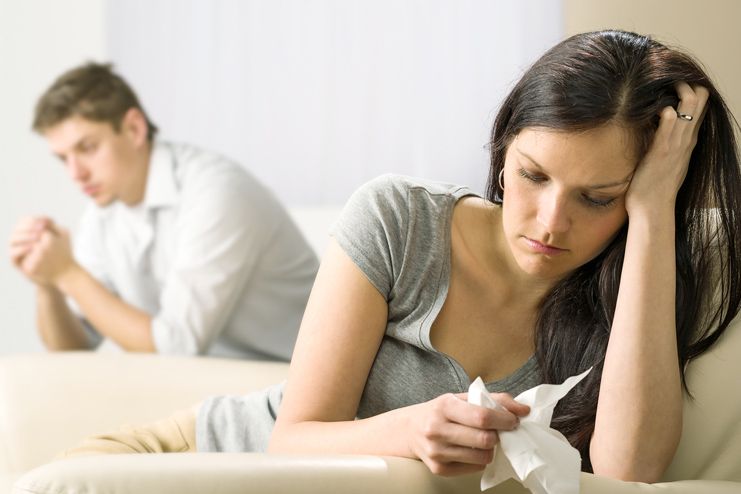 As Chlamydia is a communicable disease, rather an infection, there are severe chances of it to be spread to other people in physical contact. But, there are certain clauses that need to keep in consideration. Chlamydia is definitely contagious which is why one should always practice safe sex or even ensure to be assured of their partner’s health report before going further with any kind of unprotected physical intimacy.
As Chlamydia is a communicable disease, rather an infection, there are severe chances of it to be spread to other people in physical contact. But, there are certain clauses that need to keep in consideration. Chlamydia is definitely contagious which is why one should always practice safe sex or even ensure to be assured of their partner’s health report before going further with any kind of unprotected physical intimacy.
The bacteria causing the infection is often times, rather, for the most part, is transmitted from the infected to the uninfected person through unprotected sex or even via kissing. Any kind of body fluid exchange has the capability of transmitting the infection to the uninfected person.
Chlamydia is passed when the mucous membrane which is the skin covering the specified openings of the body comes in direct contact with the secretions or body fluids of the infected person. While oral sex is not predominantly a reason behind this infection, there still remains a possible chance of contracting this via that medium too.
Rare cases, but sometimes, the infection is even transmitted via eye infections. Even pregnant women have the possibility of transmitting the infection to their newborn babies.
How to Prevent Chlamydia?
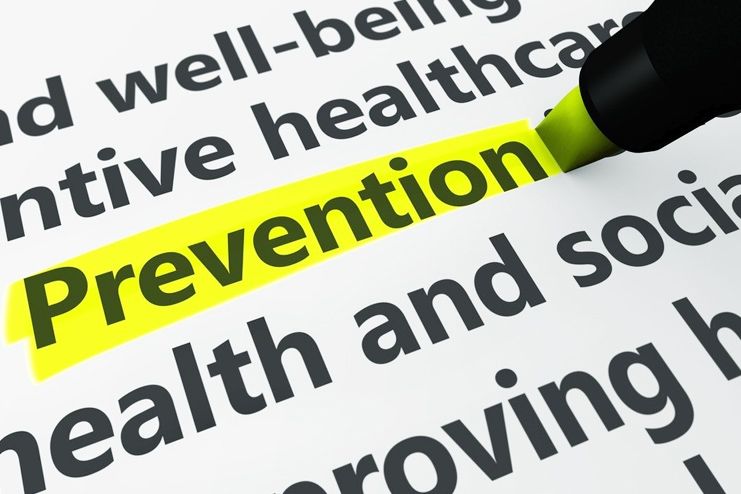
Chlamydia, much like every other sexually transmitted disease can be prevented by a number of safety measures. If you are wondering how one can actually prevent from contracting this disease, you don’t really have to do much. It is just all about safety and awareness that can help keep this disease in check.
Practice safe sex
Safe sex using condoms is one of the best ways to prevent Chlamydia in women. If the women in the relationship are the one who is infected, make sure to consult the doctor and educate yourself about safe sex before indulging in the act.
Limit your sexual partners
While there is no offence in having multiple sexual partners, there is definitely more chances of being exposed the bacteria if you are engaging yourself with several partners at the same time. Moreover, if you are not even aware of their records, there are higher risks of being exposed to such sexually transmitted infections without your knowledge.
Get yourself screened on regular intervals
Getting regular screenings is important to be assured that you haven’t been infected with any of the STIs. This is exactly what helps you be safe and keep the rest assured if there actually is any kind of infection that you should be aware of.
Avoid Douching
This is one of those steps that are best advised for women to avoid if they want to prevent the risks of contracting Chlamydia. Douching tends to reduce the levels of good bacteria in the vagina which is exactly what makes it more prone for the bacteria to attack and thrive in the body.
How Long Does Chlamydia Last?
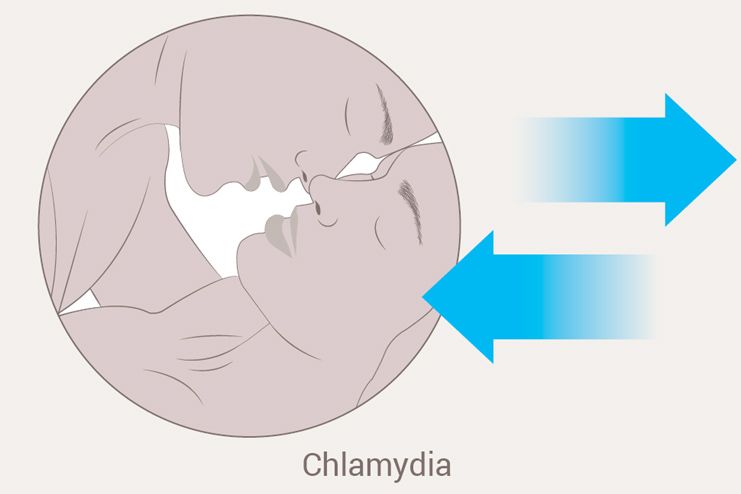
The primary factor about the symptoms of Chlamydia is the fact that they are often not even detected until at least 1-3 weeks after one has contracted the infection which is why there is no set timeline as to how long this infection lasts in an individual.
If the symptoms are diagnosed in the initial stages of inception, chances are that the process of recovery would be faster than one would normally expect but there are even exceptions where the symptoms are sometimes not even detected for months which are where the bacteria spread to unexplainable amounts and causes a problem.
In situations like these, there are chances that the infection would persist for a longer period of time and take up a good time to completely heal.
If you are here wondering is Chlamydia curable, let me clear it out for you that it actually is curable. It is just necessary to get yourself checked out for any possible signs and symptoms and walk yourself from there because if the symptoms are diagnosed at an initial stage, there are chances that the over the counter Chlamydia treatment would be more than enough to cure the problem and that too, right from the roots.
In this Article













